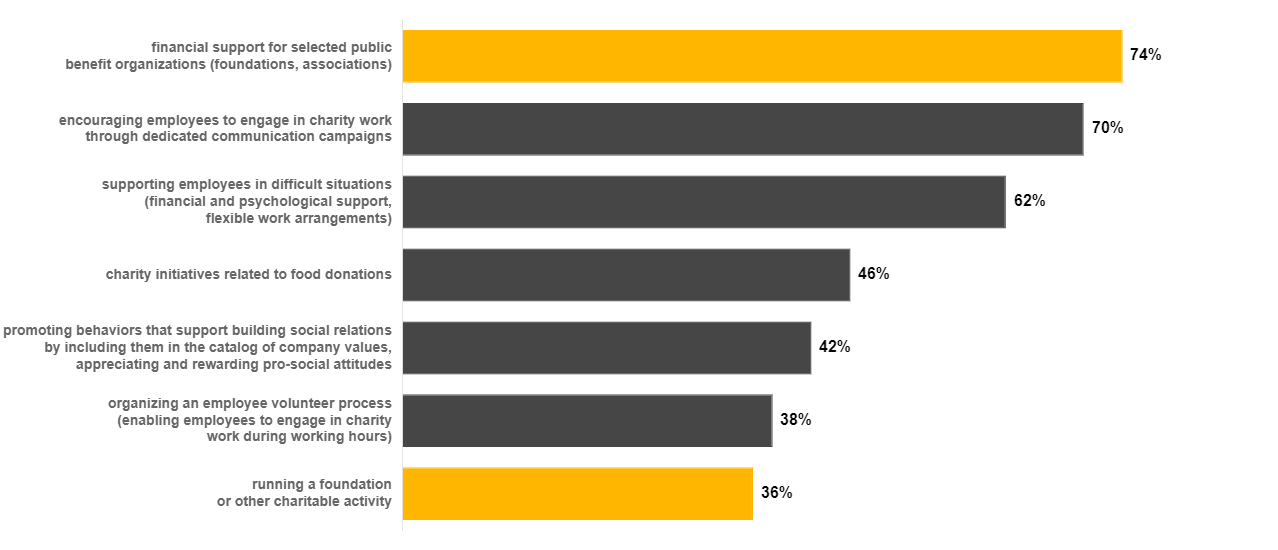Opportunities and risks related to ESG also have an increasingly measurable impact on the retail and consumer goods sector, with “sustainable” brands being built in response to growing expectations of consumers and business partners.
By taking actions that involve reducing the carbon footprint and water consumption or verifying the origin of raw materials in the supply chain, businesses will create a positive impact on the environment in the long run.
Sustainability reporting has yet to reach the same level of regulation as financial reporting. Just as with financial data, however, there are many different measurement methods that can be modified to influence the results. For data to remain consistent and comparable, ESG reports should be compiled in keeping with standards. These will enable companies to stay compliant with the Corporate Social Responsibility Directive (CSRD), which will soon come into effect.
Actions oriented towards concern for the social aspect, both inside and outside the company, are an increasingly important element of the organizational culture and have a growing impact on the development of the company’s strategy. These actions also have a non-trivial impact on important business processes.




